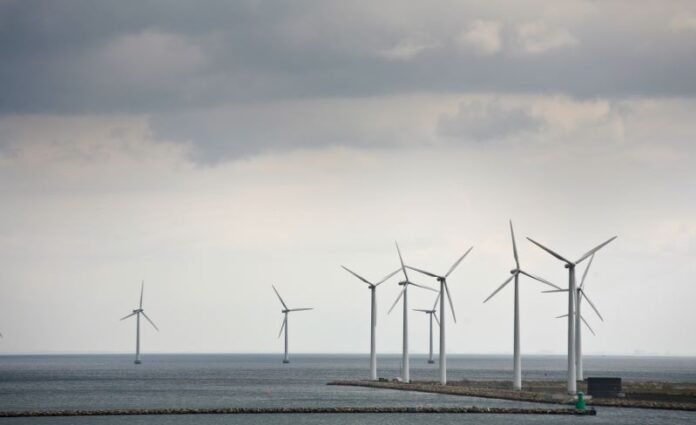The Ministry of Planning and Investment (MPI) has proposed amendments to the Law on Public-Private Partnership (PPP) in the Draft Law amending a number of articles of the Law on Planning, the Law on Investment, the Law on PPP, and the Law on Bidding, aiming to further unlock investment resources and quickly resolve difficulties in the implementation of PPP projects.
Clause 1 of Article 4 of the PPP Law stipulates that PPP projects can be implemented in five areas: transport; power grids, power plants; irrigation, clean water supply, drainage and wastewater treatment, waste treatment; health, education and training, and information technology infrastructure.
According to the MPI’s compilation, PPP projects have focused on only three areas: transportation (22 expressway projects, 3 airport projects, accounting for about 80% of the total new PPP projects), waste treatment (3 projects, accounting for about 10%) and clean water supply (3 projects, accounting for about 10%). In the health sector, there are 2 projects that have started to be studied and proposed for implementation under the PPP method by the People’s Committee of Da Nang City and Yen Bai Province.
In practice, many ministries, branches, and localities have stated that there is potential and conditions to attract investment under the PPP method in a number of other areas, but they are not yet stipulated in the PPP Law. Many investors have also expressed interest in projects in the fields of culture and sports. The National Assembly has allowed some localities to apply the PPP method to the fields of culture, sports, and market construction… according to the National Assembly’s resolutions on piloting the application of special mechanisms for local development.
In order to diversify the potential areas and meet the needs and conditions for attracting investment under the PPP method of some sectors and localities, the MPI proposes to consider amending the provisions of Clause 1 Article 4 of the PPP Law to add some areas such as: culture, sports, market infrastructure, development, water storage and water source restoration.

Regarding the investment scale, according to the PPP Law, the minimum total investment of a PPP project is 200 billion VND, and for projects in the health, education and training sectors, and projects in areas with difficult socio-economic conditions, areas with particularly difficult socio-economic conditions as prescribed by the investment law, the minimum total investment is 100 billion VND. According to many localities, this capital level is high for the health and education sectors; has not created an open and transparent mechanism to mobilize the maximum number of resources from the private sector and has not met the needs of many localities. Some projects have a small scale that localities need to invest in and attract the interest of investors but do not meet the minimum scale requirements.
Therefore, the MPI proposes to amend the provisions of Clause 2 Article 4 of the PPP Law in the direction of lowering the minimum scale for these projects to 50 billion VND for projects in the health, education and training, culture, sports, market infrastructure, information technology infrastructure sectors; projects located in areas with difficult socio-economic conditions, areas with particularly difficult socio-economic conditions as prescribed by the investment law.
The PPP Law is built on the thinking of selecting projects of a large enough scale, in areas with the ability to recover capital, and financial feasibility for investment. According to some experts, this selection is in line with international practice, avoiding the risk of collapse after the project is put into operation, because PPP projects are more complex than pure public investment and private investment, and need to balance the interests and risks of both the public and private sectors in a long-term contract, providing public services that affect many users. The preparation time for PPP projects is also longer and the transaction costs are significantly higher, both for the State and the investor community. Therefore, international experts recommend applying PPP to projects of a sufficiently large scale, so that the achieved efficiency can be higher than the increase in transaction costs.
Speaking at the recent National Culture Conference, Deputy Minister of MPI Nguyen Thi Bich Ngoc said that at the time of drafting the PPP Law, the MPI had reviewed and summarized the implementation of BOT, BTO, and BT contracts. Cultural works in the previous period mainly applied the BT contract type, which has been discontinued since 2020 under the provisions of the PPP Law.
In fact, cultural works have not proven their ability to generate enough revenue to offset the initial investment of the private sector. However, in practice, along with the development of the socio-economic situation, people’s living standards are higher, the demand for cultural enjoyment, the need for health and education… increasingly requires better service quality. Investors also see the profit potential in these areas, so the level of interest is greater.
At the same time, according to many experts, doing PPP is not just to attract capital, but also to take advantage of the good management and operation capacity of the private sector, providing better public services to society. Therefore, many localities are very eager to expand the scope to maximize the ability to attract private resources through PPP.
Taking the example of the My Dinh National Stadium, if allowed to be managed and operated by the private sector, the efficiency will certainly be better, Prime Minister Pham Minh Chinh has repeatedly directed the need to mobilize the maximum amount of private capital, public investment is only seed capital, and it is necessary to increase the attraction of PPP investment in areas where the private sector can participate.




